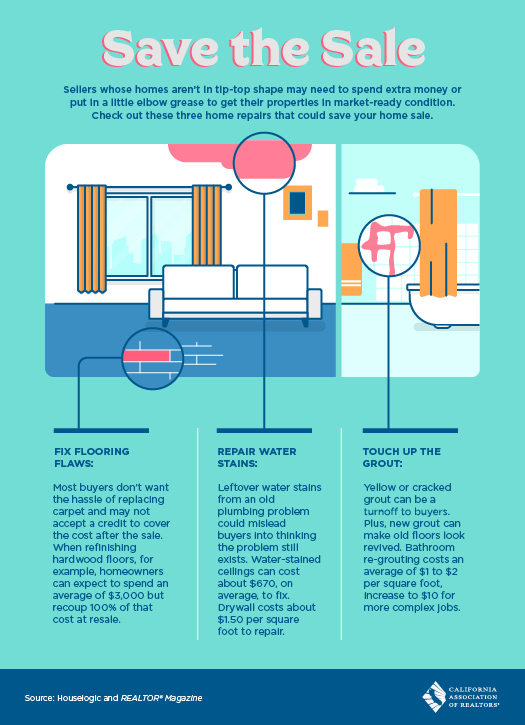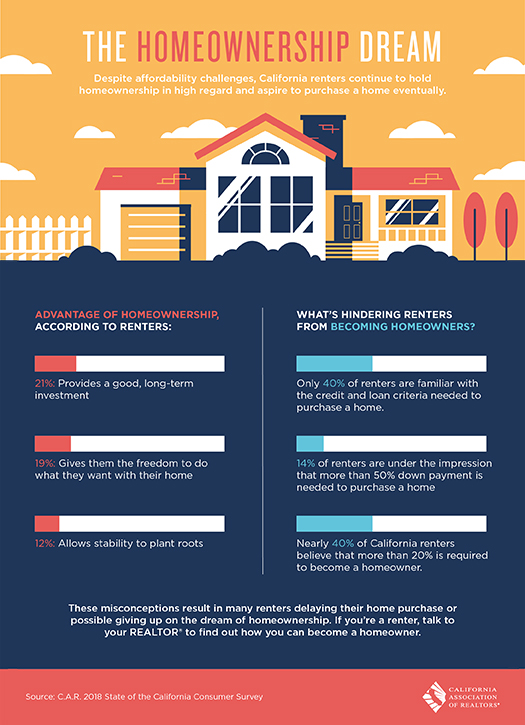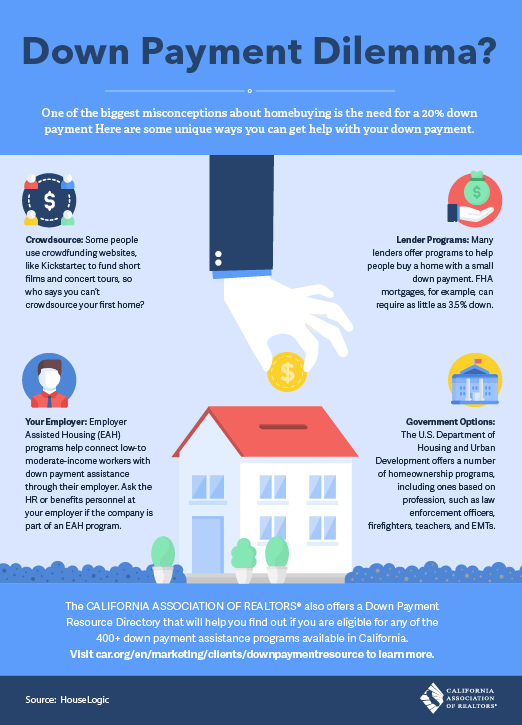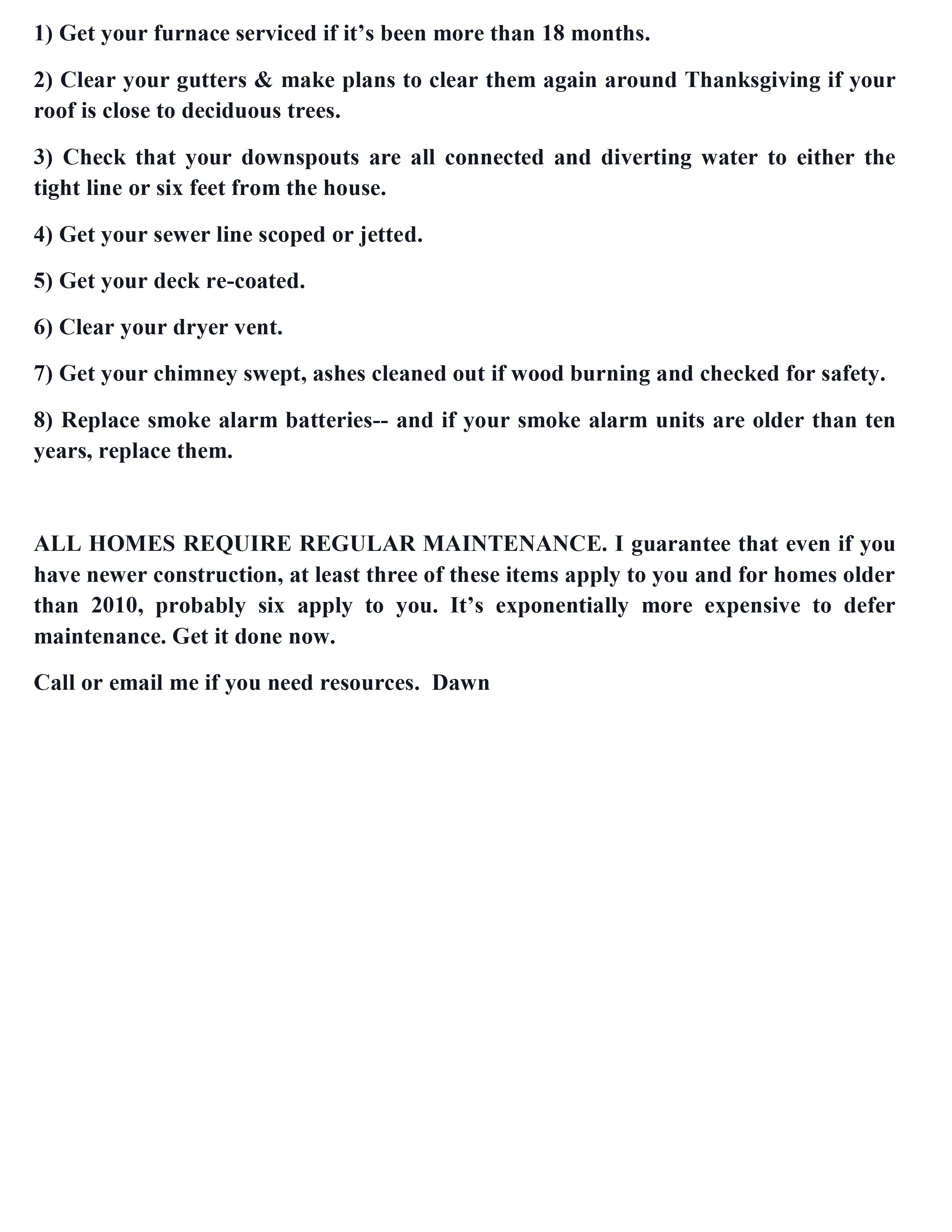All My Wisdom(s)….
Pinterest Postings
-
Join 1,629 other subscribers
BLOG Category List
Pages
FaceBook Page
MORTGAGE MUSTS … In Plain English
Be prepared for this process up front and it will make your transaction go so much smoother. There are lots of moving parts to getting approved for your loan, but luckily your REALTOR® has done this many times before and will be your best guide! Trust us to help you sail this step of the process along with your Mortgage Agent. Dawn
IF YOU HAD $1 MILLION TO SPEND ON A HOUSE – WHERE WOULD YOU?
If you had to move and had $1 million to burn, where would you go? In some parts of the country, $1 million can buy you a mansion. In other areas, you’ll be looking at condos and surprisingly small apartments.
We considered where someone would be more likely to move to if they had to move to another state. That would be one of the state’s biggest cities, which would have the most opportunities. We selected cities with a population of at least 200,000 and then checked out local inventory and chose a home that we believe best represented the area.
These $1 million homes in every major city of every state paint an interesting picture of wealth across the country. Where would you want to live?
Check out this website for the article…..
https://www.workandmoney.com/s/1-million-homes-in-every-state-b80c2b6ea59c42b2
Article from Craig Donofrio in Work & Money ezine.
What Documents to Keep After Buying a Home
I found this great article that I wanted to share with you. It was written by Dana Bull in Finding Your First Home
It is quite common now to receive most of these document from your REALTOR® or from Escrow on a thumb drive so paper retention is reduced. Just make sure you keep it somewhere. Dawn

Immediately after buying my first home, I went out for a celebratory lunch at my favorite Mexican restaurant. Blame it on too many margaritas or the fact that I could finally relax after a stressful transaction, but I somehow managed to leave my entire closing packet at the table! I had only been a homeowner for a few hours and was already off to a rocky start. By the time I realized my mistake, it was too late. All of my important documents had gone missing.
As you may have guessed already, this is a “do as I say, and not as I do” type of post.
 |
Home Buying Documents That You Should Keep
As soon as you get serious about buying a property, you should start a file system. This can be a physical folder or digital. All that matters is that it’s a safe place to store all of the contracts, agreements and important documents related to your real estate transaction. You may need to resurface these documents post-closing if there’s an issue with your home.
Agent Representation Agreements
If you elect to work with a buyer agent, you’ll want to keep any formalized contracts. These contracts state the terms of the agreement between you and the agent/brokerage. In case an issue crops up after the closing, you’ll want to refer back to the exact services that were agreed upon and if your agent can assist.
Purchase Contracts and Agreements
Both a contract to purchase a home and a sales agreement are legally binding documents. They outline all the key aspects of the deal, including price, deadlines, contingencies and concessions. Don’t forget to save these along with any addendums or riders that supplement your purchase agreements.
What happens if someone doesn’t hold up their end of the bargain and you discover the problem after you move in? These documents will help build your case should you need to hold someone responsible.
Seller’s Disclosures
You’ll want to retain any written or verbal statements made by the seller that disclose important or relevant information about the property. Sellers are required to be up-front about any known flaws and defects. You will want as much documentation as possible for legal recourse if you discover a defect that was covered up after the sale was finalized.
Home Inspection Reports
Home inspections by a licensed home inspector or other contractors are an important part of your due diligence process. They provide a thorough analysis of the condition of the home. After the change in ownership, you may want to refer back to the report and game plan for improvements and property repairs. Remember, problems that you were made aware of during the inspection should be addressed during your ownership or otherwise must be disclosed when you go to sell.
Property Appraisal
For financed properties, a home appraisal is an integral part the mortgage process. Home appraisals provide a third-party opinion of the value of your home. The appraisal can come in handy if you need to dispute the assessed value of your property. For instance, if your property tax seems high, you may be able to leverage your appraisal report to have your assessment re-evaluated.
Owner’s Title Insurance Policy
Title insurance provides coverage for past problems in the chain of title to a property. These include hidden risks due to forged signatures, missing mortgage discharges, probate issues, etc. that are unknown at the time of closing. In the rare chance that a dispute arises, it’s best to have your policy readily available as it’s critical to protecting your claim to the title.
As soon as you get serious about buying a property, you should start a file system. This can be a physical folder or digital. All that matters is that it’s a safe place to store all of the contracts, agreements and important documents related to your real estate transaction.
Home Insurance Policy
Mortgage lenders require that you have homeowners insurance. After all, the lender has significant interest in your home and it wants to see that the asset is protected. Insurance covers a wide variety of issues – from theft and vandalism to household malfunctions, like freezing pipes. You never know when you’re going to need your insurance to kick in and when you do, you’ll want easy access to your policy info.
Warranties
If you purchase a newly constructed home, a builder’s warranty likely comes with it. Even used homes are sometimes protected by a home warranty that covers malfunctioning of certain items, like heating and cooling systems, plumbing and electrical or appliances. If something fails during your homeownership, you’ll want to refer back to your warranty coverage plans. Utilizing a warranty can help bolster repair expenses.
Closing Disclosure
Your closing disclosure (CD) should have been sent to you at least three days before your closing. This five-page document details information about your loan and closing costs. You can refer back to your CD for loan terms, disclosures and contact information. Plus, you want to hang onto it for when tax season rolls around as some aspects of your loan may be tax deductible.
Property Deed
Your deed and pertinent mortgage documents will be recorded at your county registry. This document states the transfer of ownership from the seller to you. Since the deed is made available on public record, you don’t necessarily need to keep it. That said, it doesn’t hurt to save the original copy, which is usually mailed to you after the deed is filed.
Helpful Info
During the change of hands, the sellers may provide you with helpful information like key contacts for service providers – think snow removal, lawn care, pest control, handyman etc. Some sellers may go so far as leaving guides behind for how to work certain mechanicals, systems or quirks about the house.
What Happens If You Lose This Stuff?
What happens if you accidentally leave everything at a Mexican restaurant? The good news is that you can track down most of the information through a few different sources.
- Your real estate agent’s brokerage firm is required to keep many of the aforementioned documents, like the buyer agent agreement, purchase docs and seller’s disclosure, on file.
- Your lender may have a copy of the appraisal report on file along with your home insurance binder.
- Your closing agent or attorney should be able to provide you with a certified copy of your closing package, which includes the CD, and title insurance policy.
- If you need a copy of your deed, you can contact your county’s registry of deeds or stop by in person. Many counties have made the information available online.
- The other ad hoc items can be tracked down with some effort. For instance, you may need to reach out to your home inspection company directly for a copy of the report.
Posted in Appraisal, Buyers, Buying a Home, Inspections, Investment Properties, Investors - Investment Income, New Homes, Personal Opinions, REALTOR®, Seller Disclosure
|
Tagged @New Home, Buyers, Home, House, Online, Paperwork
|
Leave a comment
Seller Who Want to Save The Sale – Good Advice – Spend a Little

Posted in Buyers, Buying a Home, For Sale By Owner, Home Maintenance, Listing, Personal Opinions, Real Estate - Sellers & Buyers, REALTOR®, Remodel, Remodeling, Seller Disclosure
|
Tagged For Sale By Owner, FSBO, Home, Home Maintenance, House, Opportunities, Personal Opinion, Real Estate Sales
|
Leave a comment
The Homeownership Dream

Don’t give up on your dream to own a home. My motto is that “If there is a will, there is a way!”. Talk to your trusted REALTOR®. They have many options from their favorite lenders that just might help you obtain your home! ~ Dawn
Posted in Buyers, Buying a Home, FHA & VA Loans, Investment Properties, Lenders & Loans, NAR-National Association of REALTORS®, New Homes, Personal Opinions, Real Estate - Sellers & Buyers, REALTOR®
|
Tagged @New Home, Buyers, California, credit, Home, House, loans, Mortgage loan, mortgages, Opportunities, Personal Opinion, Real Estate Sales
|
Leave a comment
WINTER IS COMING…………..
Some helpful reminders to get ready for winter – no matter where you live.
Down Payment Delemma?
Some helpful hints for Down Payment Assistance from California Association of REALTORS®. In a Buyer’s market, sometimes the seller will credit buyer’s closing cost which helps with funds out-of-pocket too. When the market swings to a buyer’s market, check out your options – Dawn

Posted in Buyers, Buying a Home, FHA & VA Loans, Lenders & Loans, Real Estate - Sellers & Buyers, REALTOR®
|
Tagged Buyers, California, Home, House, mortgages, Opportunities
|
Leave a comment
Should Listing Photos Be Removed After the Sale?
Interesting article from National Association of REALTORS® feed today. It might gain some traction in the future and probably can be suppressed from the local MLS listings by agents after a sale, but getting ALL pictures removed for ALL websites to me seems like trying to put the toothpaste back in the tube. Just my own personal opinion. Dawn
August 20, 2018
Some home buyers express concern that photos of their properties continue to live on real estate websites after they’ve closed on the purchase, and they’re asking real estate professionals to help take them down, citing privacy and security issues. In a column in Chicago’s Pioneer Press, a buyer named “Deborah” wrote about her efforts to get the listing photos of her home removed after she bought it. Deborah says the seller’s agent refused her immediate request, saying other real estate companies like to see the photos and use them as comparables and for appraisals.

© pbombaert – Moment/Getty Images
But Deborah was concerned that the interior of her home was still viewable. In the column, she calls for the industry to launch a new provision for home buyers so that they can opt out of keeping listing photos online indefinitely—similar to a “Do Not Call” list.
Generally, secondary photos of sold properties can be “suppressed” from an MLS’s data feed to third parties at the listing agent or managing broker’s request. However, the primary listing photo—which most often is an exterior shot of the property—likely will remain available to view.
Lesley Muchow, deputy general counsel for the National Association of REALTORS®, says homeowners can request that third-party sites remove property photos that are still visible after closing. Homeowners also may want to ask their agent to intervene in getting photos suppressed from the MLS and its feeds.
Source:
“Column: New Homeowners Face Difficulties When Removing Photos From Online Listings,” Chicago Tribune (Aug. 16, 2018)
Cost of For Sale By Owner – You Will Be Surprised!

Courtesy NATIONAL ASSOCIATION of REALTORS® July 16, 2018
You’ve heard of buyer’s remorse; but without your market expertise and sales skills to back them up, sellers who choose to sell their home on their own just may experience “seller’s regret” when they see how much less they get for their properties. FSBOs earn an average of $60,000 to $90,000 less on the sale of their home than sellers who work with a real estate agent, according to the National Association of REALTORS®. Here’s the breakdown:
- All agent-assisted homes: $250,000 (median selling price)
- All FSBO homes: $190,000
- FSBO homes when buyer knew seller: $160,300
With this kind of discrepancy, why would any seller choose to go it alone? Some may want to avoid paying an agent’s commission—but even factoring that in, FSBOs still stand to make less on their home sale. “Talk to an agent and find out what they suggest for the commission, and then do the math yourself,” researchers write on NAR’s Economists’ Outlook blog. “The closing price for the agent-assisted seller is likely going to be way above a FSBO. [But] in reality, homes sold by the owner make less money overall.”
Homeowners seem to be hearing the message: Only 8 percent of sellers last year—an all-time low—chose to sell their home themselves, according to NAR’s 2017 Profile of Home Buyers and Sellers. That figure has been falling since 2004, when 14 percent of homeowners sold their own homes.
Of the share of FSBOs last year, 38 percent of the homes were sold to a buyer that the seller knew, such as a friend, neighbor, or family member. The majority of FSBO transactions, however, were sold to buyers the owner did not know.
Source:
“Selling Your Home Solo to Save Money? You’ll Actually Make Less Than You Think,” National Association of REALTORS® Economists’ Outlook blog (July 9, 2018)
What is an ADU & Why You Should Care?
Great Information if you are looking for additional space to care for loved ones and/or several other options. Check out this article from the LifeEdited.com website. Dawn
What is an ADU and Why You Should Care
ADU stands for Accessory Dwelling Unit and they might just be your next edited home. You might know ADUs by their other, quasi-affectionate names such as granny-flats, mother-in-law-apartments and so on. They are dwellings–either attached or detached from a main house–that exist on a lot with another house. Many ADUs are buit above garages such as the one pictured above.
ADUs have myriad benefits such as:
- Creating a secondary rental income.
- Increasing the occupancy of a given plot of land.
- Creating more communal living, while still providing autonomy and privacy for both homes.
- People who may have once needed a large home–e.g. parents whose children have moved out–can move into the ADU and rent out the main home.
ADUs are not lean-to’s; they are real homes that require building permits and some investment. A great resource is accessorydwellings.org, which goes into the ins-and-outs of ADU construction, financing, zoning for every state and other issues.
For those looking to install an ADU on their property, but who don’t want the headache of designing a custom home, there are many prefabricated options like the model above by Blu Homes.
What’s great about ADUs is that they provide a way of optimizing traditional the American home, whose lot size is often considerably larger than its home. We realize many people who want to live an edited life live in traditional American homes; moreover they neither want to move into a micro apartment in the city or a tiny house in the country. The ADU provides a great way of working with existing resources, while providing extra income, increasing the efficiency of a property and creating a more community-oriented lifestyle.
Do you have experiences living or building an ADU? Tell us about it.
Top picture by Pete Sloutos, courtesy of Peter Brachvogel, BC&J Architects
Posted in Add Ons, Additions, ADU, Buyers, Buying a Home, FHA & VA Loans, Home Security, Inspections, Investment Properties, Investors - Investment Income, Lenders & Loans, New Homes, Real Estate - Sellers & Buyers, REALTOR®, Remodel, Remodeling, Second Homes
|
Tagged Accessory Dwelling Unity, ADU, Blu-Homes, Buyers, Granny Unit, Home, House, Opportunities, Pre Fabs, Tiny House
|
Leave a comment



